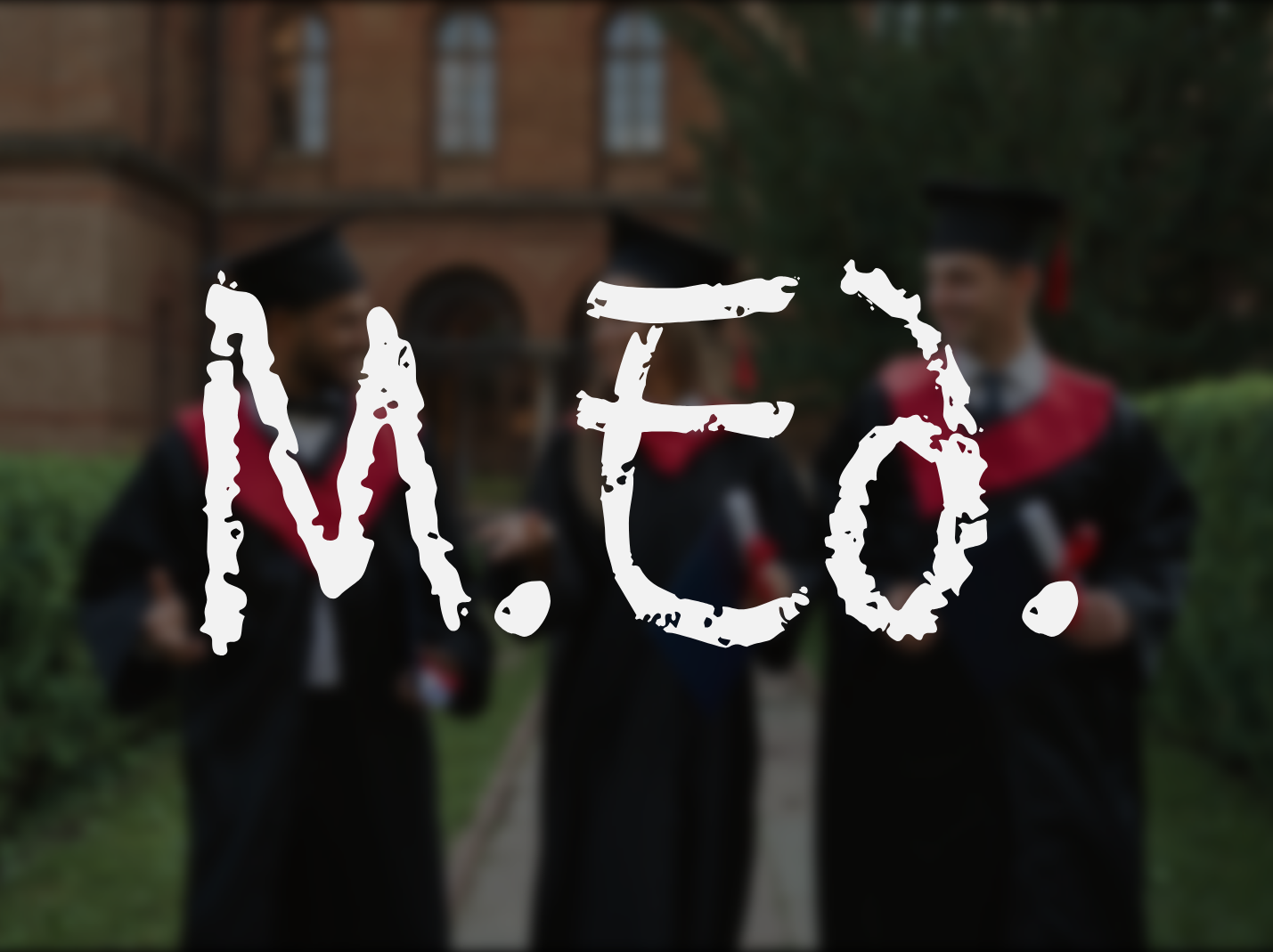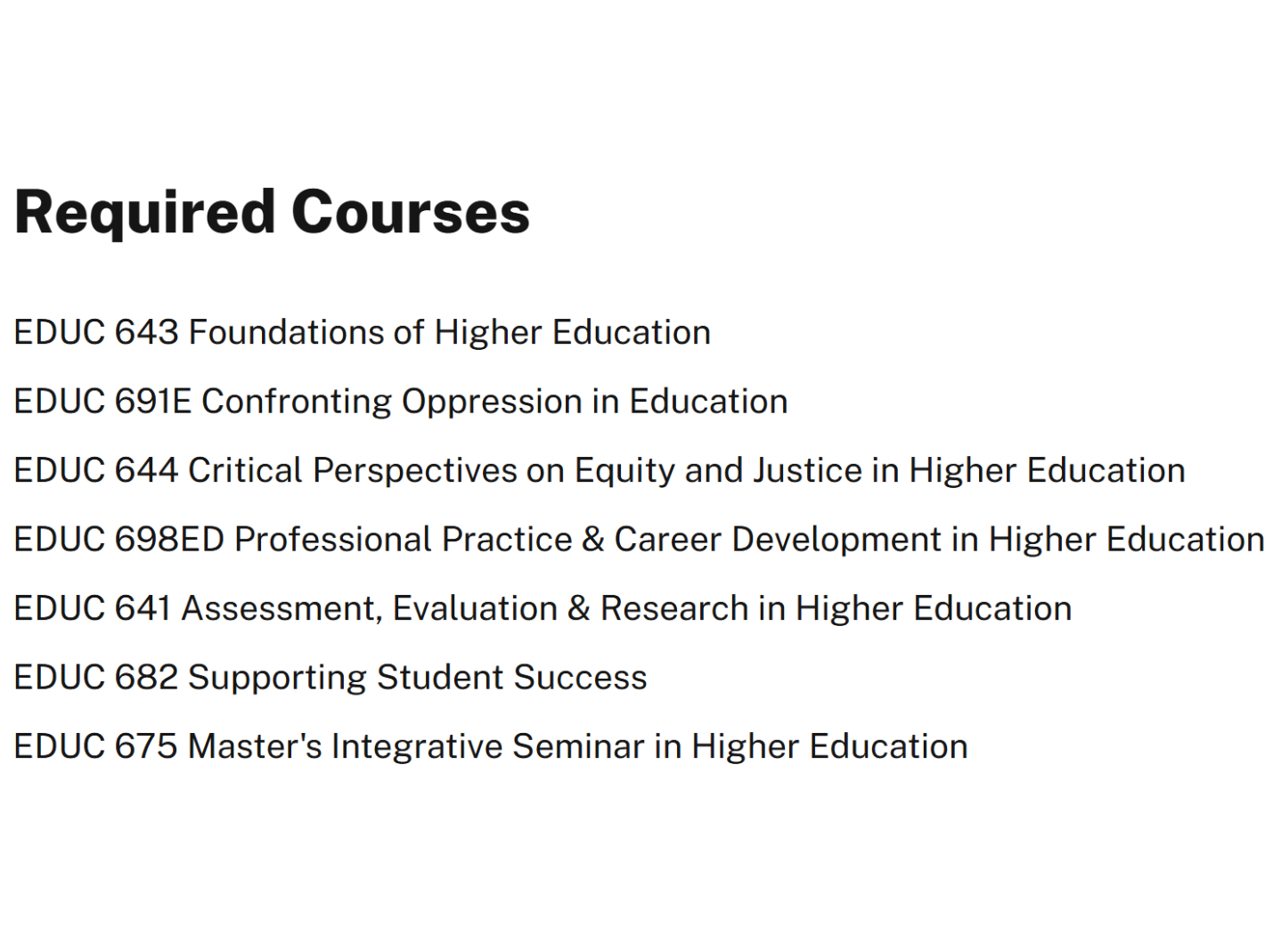
A century ago, student dormitories were supervised by faculty who lived in the buildings, a tradition that remains at Harvard, Yale, and elite prep schools such as Phillips Andover. The sheer number of veterans who arrived with the GI Bill after WWII forced most institutions to abandon this model—they just let the veterans run their dorms themselves—but the 1965 Higher Ed Act permitted the Baby Boom generation as a whole to attend college and when they arrived en masse in the late 1960s and early 1970s, higher education turned to graduate students and post docs to supervise student dormitories.
No longer members of the faculty and definitely not on a tenure track, they were offered an apartment in a student dorm, a student meal plan, and a modest stipend. As the bureaucracy expanded, many of them were promoted into full-time positions in what was rapidly becoming the modern student affairs profession.
I probably should also point out that every college or university, regardless of its size or complexity, essentially has four divisions—academic affairs, student affairs, administration and finance, and maintenance and operations. Student affairs initially was anything that wasn’t in the other three categories, but those barriers are no longer being observed. Student affairs is now offering academic credits at most institutes of higher education, bringing “diversity, equity, and inclusion” (DEI) into the administration, and incorporating “sustainability” into various aspects, from construction to waste disposal.
While it’s a well-known fact that the faculty of most institutions lean to the left, they look downright conservative when compared to the left-wing loons in student affairs—ideological fascists who have become a cancer destroying our once great institutions. It’s not a coincidence that the master’s degree in higher education has become an increasingly common prerequisite for those seeking to enter the field.
I earned this M.Ed. from the University of Massachusetts Amherst (UMass) back in 1997. While it was not a program friendly to those to the political right of Vladimir Lenin, back then it provided a solid foundation in the field, or at least enabled one so inclined to obtain such a foundation. The curriculum included the history of higher education, the philosophy of higher education, education law, pedagogy, and ethics.
After reading Jared Gould’s article on the credentialization of employment, I decided to revisit this program thirty years later and was shocked at the extent to which it had been infiltrated by DEI.
[RELATED: America’s Obsession with Diplomas Is Killing Opportunity]
The second semester of the bedrock Foundations of Higher Education has been replaced with Critical Perspectives on Equity and Justice in Higher Education. That course “focuses on the political economy of and oppression within higher education institutions.”
It’s description states that by the end of the course, students will be able to “[e]xplain systems of power, privilege, and oppression within contemporary society and describe how higher education institutions both shape and are shaped by these systems”—this isn’t just DEI but compelled speech for those who do not believe in things like critical race theory.

Screenshot of UMass Higher Education M.Ed. Course of Study
[RELATED: Not Every College Deserves to Be Saved]
Another required course is EDUC 691E: Confronting Oppression in Education, which consists of two mandatory 9:00 a.m.-5:00 p.m. classes on specific Fridays, followed by the selection of two weekend-long seminars, also held from 9:00 a.m.-5:00 p.m. Proposed topics include “racism,” “sexism,” and “trans oppression.”
As a university employee, I was once forced to sit through an unpaid weekend of these diatribes, fortunately not for a grade. Sit through one and you’ll see why I use the term “left-wing loons”—one really has to wonder about the psychological health of some of these individuals.
In addition to these two mandated DEI courses, students also have the option of taking “Race, Class, and Gender in Higher Education,” “Women in Higher Education,” “Inclusive College Environments and Campus Cultures, and College Access and Equity”—not to mention an independent study with a faculty member. As there are only five electives amongst the total twelve classes (36 credits) required, one could conceivably graduate with 21 of the required 36 credits (58%) being DEI, not to mention the DEI content buried in the other courses.
I’m using UMass as an example because it’s an institution I’m familiar with, and because I graduated from this program back when it was quite different. However, as the National Association of Student Personnel Administrators and the American College Personnel Association are standardizing these courses along DEI lines, UMass is pretty much reflective of what you will find in this degree today.
The fact that graduates of these programs are being hired into the student affairs profession explains why we are experiencing the problems we are today, many of which do not receive the publicity they deserve. Twenty years ago, there were genuine civil libertarians in the UMass Dean of Students Office; they retired and were replaced by social justice warriors, and that’s a problem.
But I’ll end by again asking the question I asked a couple of weeks ago—if DEI is a violation of both Title VI and IX, and universities receiving federal funds are not allowed to violate Titles VI and IX, then how is UMass getting away with nonchalantly doing so?
Cover by Jared Gould using image by Тарас Нагирняк on Adobe Stock; Asset ID#: 463837276 and “M.Ed.” in chalky font.
The missing element is how this approach is acceptable to the private sector where the money comes from. It can not, nor from what I read will find the private sector being unwanted.
The other programs which has emerged from what I can tell, and from my experiences of the 80s are all off shoots of Minor Student Affairs with sprinkling of International Students’ Affairs. Everything else is to foist additional staffs and criteria courses to which to challenge traditional accreditation processes to which deluges core research and critical observation of who, what, and where of each incident outside the academic spheres of influences; thus creating fantasy credits lowering the academic standard of once leading institutions.
My take, to be very brief, all I see is paper. Moreover, the era we are witnessing matches the trial and execution of Socrates. The subject on trial is the Human Rights to Full Discoveries to Define Life.